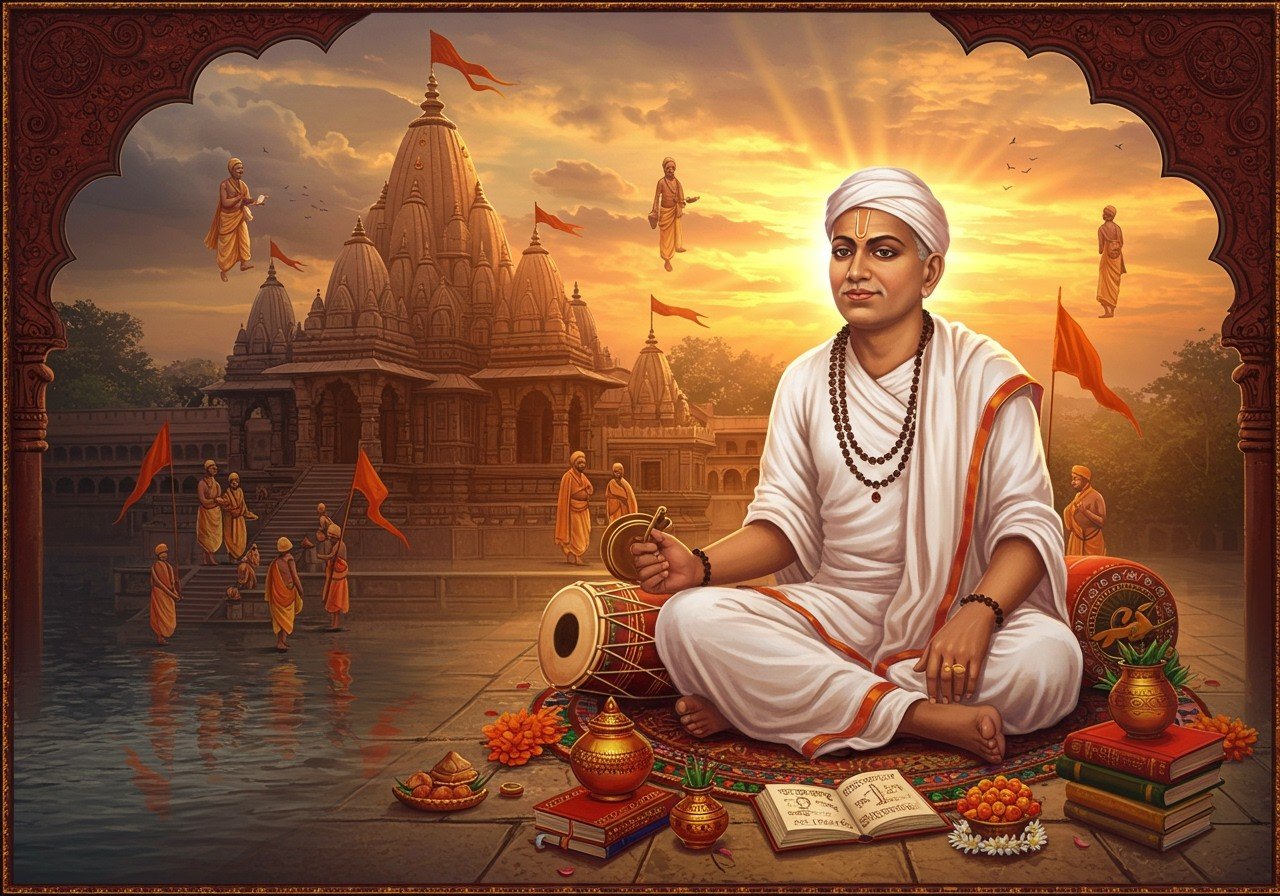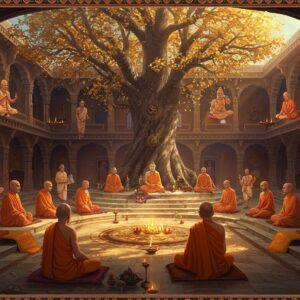Sant Tukaram: A Beacon of Devotion and Social Reform

Sant Tukaram, a revered 17th-century Marathi poet and saint, holds a significant place in the Bhakti movement of Maharashtra. His devotional poetry, known as Abhangas, resonates with deep spiritual meaning and continues to inspire generations. These hymns, dedicated to Lord Vitthal (a form of Vishnu), are more than just songs; they are a testament to Tukaram’s profound love for God and his vision for a more just and equitable society. You can find resources related to Sant Tukaram and the Bhakti movement on Poojn.in, India’s largest online store for cultural goods and services.
The Essence of Abhangas
The term “Abhanga” translates to “unbroken” or “indestructible,” signifying the unwavering devotion and continuous love for God that Tukaram expressed. These poems, often set to music, are powerful expressions of spiritual longing and praise for Lord Vitthal. They were a medium for Tukaram to share his spiritual insights and connect with the divine.
Looking to deepen your spiritual practice? Explore a variety of prayer beads and other devotional items at Poojn.in.
Themes and Teachings within the Abhangas
- Mythology and Stories of Saints: Tukaram’s Abhangas often drew upon mythological narratives and stories of saints to convey spiritual truths. He used these narratives to illustrate moral lessons and inspire devotion in his listeners.
- Praise of Lord Vitthal and Pandharpur: Many Abhangas are dedicated to praising Lord Vitthal and describing the sacred town of Pandharpur, a significant pilgrimage site for Varkari devotees. These hymns evoke a sense of longing for divine connection and celebrate the spiritual significance of Pandharpur.
- Autobiographical Elements and Self-Criticism: Tukaram infused his poetry with personal experiences, reflecting on his own spiritual journey and engaging in self-criticism as a means of growth. This personal touch makes his Abhangas relatable and allows listeners to connect with his humanness.
- Moral Education and Religious Views: Tukaram’s Abhangas served as a platform for moral education, imparting wisdom on ethical conduct and righteous living. They provide insights into his personal interpretations of religious principles, emphasizing devotion as a path to liberation.
- Social Critique and Defense of Beliefs: Tukaram was a vocal critic of social injustices, particularly the rigid caste system prevalent in his time. He used his poetry to advocate for equality and challenge the existing social order. This made his Abhangas a tool for social reform and a voice for the marginalized.
Philosophical Interpretations and Social Impact
Tukaram’s Abhangas offer profound philosophical insights, exploring themes of humility in the face of greatness and the importance of living a simple life in harmony with nature. They emphasize the power of Bhakti (devotion) over rituals and caste-based practices as the true path to spiritual liberation. This emphasis on devotion, combined with his critique of social injustices, made his Abhangas a powerful force for social change, challenging the dominance of the Brahmanical society and promoting a more inclusive and equitable social order.
Discover a collection of books on Sant Tukaram’s teachings and the Bhakti movement at Poojn.in.
Enduring Legacy
Sant Tukaram’s Abhangas remain deeply ingrained in the cultural fabric of Maharashtra. His literary contributions, along with those of other Bhakti saints like Dnyandev, Namdev, and Eknath, propelled the Varkari tradition and significantly enriched Bhakti literature. His influence can be seen in Marathi folk music and cultural practices.
His teachings continue to resonate with people from all walks of life, offering a timeless message of love, devotion, and social harmony. Explore a selection of Vithal-Rakhumai idols and other devotional items at Poojn.in.
Discover more about the profound teachings and life of Sant Tukaram through resources available on Poojn.in. Delve deeper into the rich spiritual heritage of Maharashtra and the Bhakti movement.


